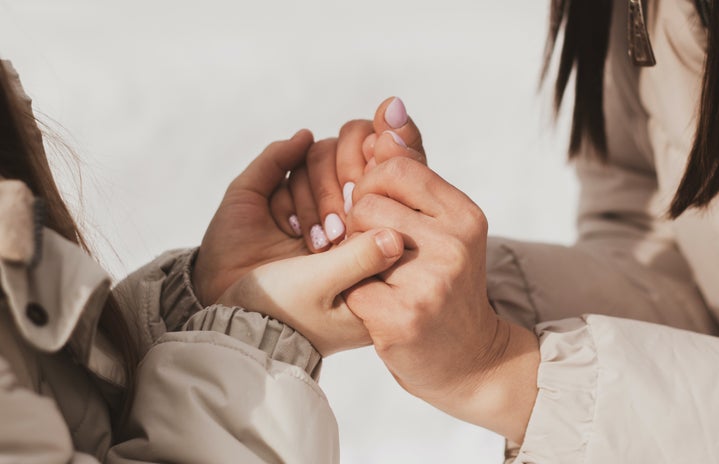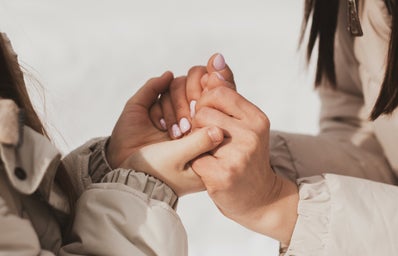Empathy is a choice; make sure you choose it!
I have always been a feeler — of the good, the bad and the undefinable. My emotional tendencies were not unique to just me. As a child, my family would receive cards from the Humane Society in the mail thanking us for our donation because neither my sisters nor I could make it through a commercial without tear-stained faces and pleading eyes turned toward our parents, who would always oblige us by donating because we received our hearts from them.
When I was watching this year’s presidential and vice-presidential debates, all I could think about was the lack of empathy that many Americans have developed for their fellow man. Thinking in “us versus them” terms has become commonplace. We consider who is part of the “us” group, while labeling and generalizing who belongs in the “them” group. When the future president says, “fellow Americans,” who do you think of? This “us” group is typically the group of people that align with where you fall in terms of demographics — which means you are often considering your own race, gender, class, religion and overall life experience.
This grouping can be beneficial when looking for community, but it can lead to extreme othering in which, apathy becomes the default. It can become the default to villainize a group you have only heard rumors and ghost stories about. This is why we must care for everyone around us.
Growing up, kindness was generously given. The people surrounding me were wildly empathetic, like my family and friends. They had an optimistic outlook toward a world that has so much to offer. During recess, my friends and I would make sure that anyone who wanted to join our game of four-square or tetherball was always welcome. If there were not enough seats at a table, we could always pull one up. Being kind was simple.
Now that my friends, family and I are all older and have more experience in the ways of the world, it is much harder to embody that same inclusivity, that same ease of care. Our anxieties have grown more complex, as have the problems we face. We all have bills that need to be paid, overdue schoolwork, people we need to see and club meetings we are missing — it seems like we can never accomplish anything while trying to do everything.
On top of the physical tasks plaguing our Google Calendars, our emotional issues have compounded. We have all dealt with situations that bring on heart-stopping anxiety or grief that seems inconsolable, and that combined with the overexposure to pain and suffering in our modern world has led people to become closed-off toward the seemingly irrelevant people around them. This pain can become so heightened that it can make one wonder whether it is better to feel nothing rather than everything.
Feeling nothing is the popular answer. The idea that you should become beyond — beyond reach, beyond the pain, beyond those who surround you. Being untouchable can lead to peace of mind because the only person who concerns you is you. It makes decisions simple. When considering which candidate to vote for, the simple answer is whichever person supports policies that will benefit you and your own ( the “us” group). There are no longer requirements or obligations to those around you, only self-motivated activities. This does not necessarily mean being selfish, but it does require a level of isolation and lack of care.
The more difficult answer is to feel. It is a challenge to continue opening your heart after experiencing so much hurt. It is a choice not to go through life numb. It is the choice to feel for the friend going through a difficult time who acted out of anger. It is the choice to pursue a potential crush even though you do not know how they feel towards you. It is the choice to wear the outfit that you want to wear because you love it. Empathy is a choice. It is always a choice.
Wearing your heart on your sleeve means that you could get hurt, but it also means that there are so many more opportunities for better. Growing pains are just that.
When my sister was in sixth grade, the President of the United States enacted a travel ban on numerous Muslim-majority countries while spewing hate speech about deporting immigrants. This upset her so much that she hid under a table and cried, thinking that our father was going to get deported. She was a little off the mark considering our India was not on the list of banned countries, and our father had been a U.S. citizen long before that. It’s a story we laugh about now because she was so insanely incorrect, but this fear isn’t a joke to many people. It is a reality facing thousands of families.
A lot of the issues that the candidates are attempting to address are humanistic in nature. The solution to them depends on people caring for both the people they know and the people they do not know. Consider the voiceless and those who want to make a change but are held back by social, political or cultural restraints. You could be the one to change someone’s life.
Elie Wiesel, the Nobel Prize-winning author and Holocaust survivor, said it best, “The opposite of love is not hate, it’s indifference. The opposite of art is not ugliness; it’s indifference. The opposite of faith is not heresy; it’s indifference. And the opposite of life is not death; it’s indifference.”
This election season, do not be untouchable. Indifference does not mean strength or safety, only solitude. This election season, you should care.


